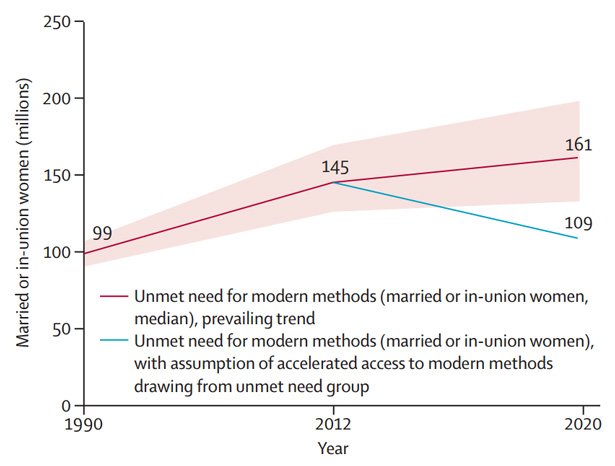-
Kaja Jurczynska, Population Action International
222 Million vs. 233 Million: Measuring Global Unmet Need for Contraception
March 21, 2013 By Wilson Center Staff
Last week, a new study out of The Lancet projected that in 2015, 233 million married or in-union women worldwide will have an unmet need for modern family planning.
The bad news: that’s 12 million more women globally since 2010 who want to prevent pregnancy but lack contraception. In fact, without accelerated access to modern methods, the number of women with unmet need in the poorest countries may grow further.
Unmet need itself is nothing new – in 2012, the Guttmacher Institute’s Adding It Up found that 222 million married and unmarried sexually active women in the developing world had an unmet need for modern contraception. Why the difference?
- Different time periods: The Lancet draws on existing surveys for model-based estimates and short-term projections for the entire period 1990-2015, while Adding It Up drew on recent survey data to project contraceptive use and unmet need to 2012;
- Different women: The Lancet figures – captured in more detail in the United Nations Population Division’s World Contraceptive Use 2012 update – currently only pertain to married or in-union women whereas Adding It Up captures the needs of both married and unmarried sexually active women; and
- Different areas: Adding It Up pertains to women in the developing world while The Lancet publication highlights the needs of women globally.
Continue reading on the PAI Blog.
Sources: Guttmacher Institute, The Lancet, UN Population Division.
Chart Credit: The Lancet.
 A Publication of the Stimson Center.
A Publication of the Stimson Center.



